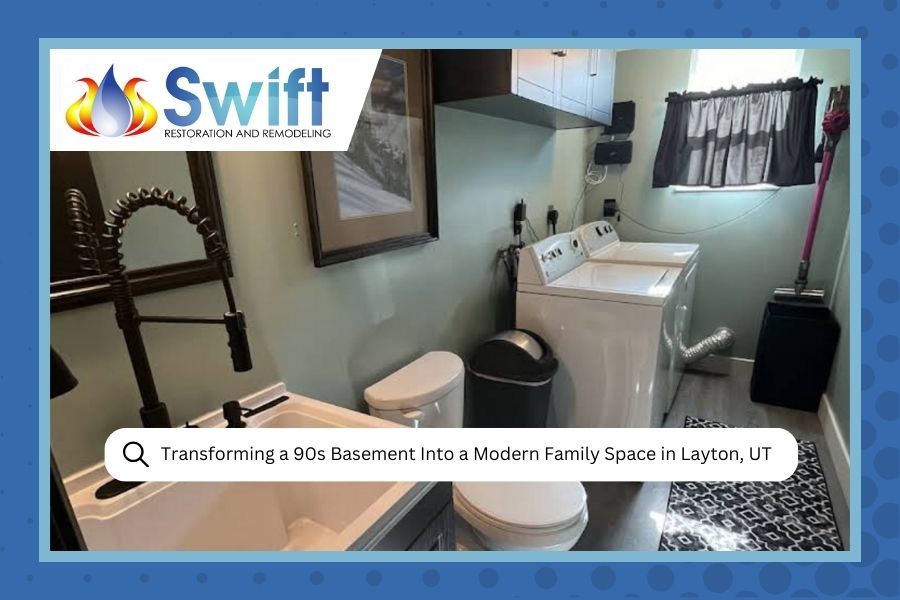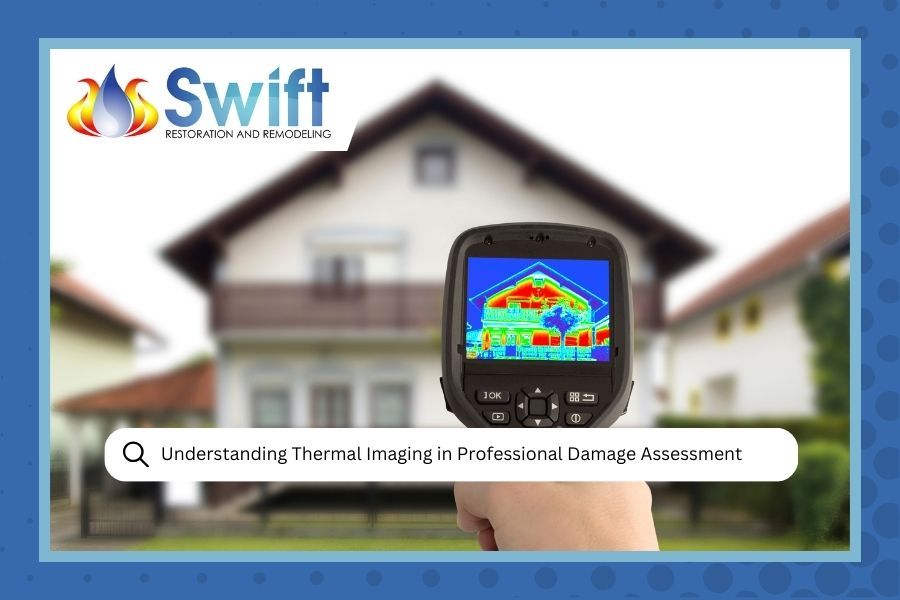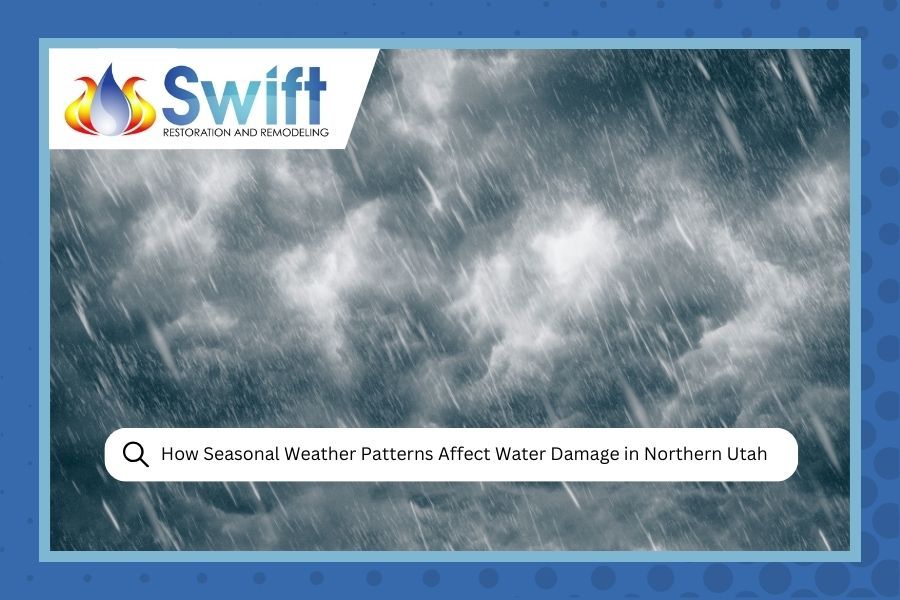
Author: Darin Jenks
Unless you want to freeze in the cold while bathing, a water heater is one of the most important equipment for your house. Aside from bathing, washing dishes with cold water may be strenuous. That is why you must ensure that your water heater has a lengthy lifespan. However, there are several factors that could affect the lifespan of your water heater. One of which is a water heater burst. A water heater burst may be caused by different reasons such as corrosion, sediment build-up, or faulty thermostat. When this happens, calling a water damage restoration company in Ogden with enough experience dealing with water heater burst is your best option. Contact Swift Restoration and Remodeling now if you are in need of their professional services.
Water Heater Burst: Usual Lifespan
Water heaters come in a variety of styles. As a result, their lifetime varies according to the type. A standard water heater has a lifespan of eight to twelve years. If you can assure regular maintenance and care, you may be able to extend the average lifespan by two to three years.
There are several low-cost water heaters on the market. These appliances only come with a six- to eight-year guarantee. The more expensive ones, on the other hand, have a warranty of eight to twelve years. If a water heater has sustained too much damage, it cannot be repaired.
Buying a water heater with an extended warranty is a safe option if you don't want to buy a new one every time one breaks, or if you don't want to deal with a messy basement flood cleanup. So, look for a water heater with at least a ten-year guarantee. But, no matter what heater you have, if your hot water isn't working, you need to fix it right away.
Different Types of Water Heaters
Water heaters come in a variety of shapes and sizes, with varying lifespans. Some of the most prevalent types of water heaters are as follows:
- Tank Gas Water Heater: These are the most common types of water heaters. They have a lifespan of eight to twelve years. The anode in these water heaters corrodes with time, which is the primary cause of failure.
- Tank Electric Water Heater: These water heaters have a somewhat longer lifespan than gas water heaters, lasting somewhere between ten and fifteen years. They are powered by electricity, as the name implies. It features an electrical heating system rather than a gas burner. The electrical components of these water heaters must be serviced on a regular basis.
- Tankless Gas Water Heater: The tankless gas water heater is the most recent invention. These water heaters have a much longer lifespan than those using tanks. On average, a tankless water heater will provide you with excellent service for twenty years. Proper maintenance will extend its life by 10 years.
- Tankless Electric Water Heater: Tankless electric water heaters are very identical to tankless gas water heaters. With regular care and maintenance, these water heaters will likewise endure for twenty to thirty years.
The only concern you'll have is a leak in the heat exchanger, which might happen over time, so keep an eye out for any water damage.
Factors Affecting The Lifespan of Water Heater Burst
The following aspects should be considered since they have a major impact on the lifespan of water heaters:
- The Pressure Release Valve: Traditional water heaters include a pressure release valve. These valves keep the heaters from bursting due to excessive pressure buildup inside the water heater. Check your pressure relief valve on a regular basis to ensure it is in good operating order.
- The Anode Rod: As previously said, the anode rod is the most critical component of your conventional water heater burst and is quickly corroded. The anode rod is fastened to the top of the gas/electric water heater. Replace it immediately if you see any signs of deterioration.
- Limescale:
Limescale is a blight on both tank and tankless water heaters. A small quantity of limescale may wreak havoc on the heating of cold water. The answer is to use undiluted white vinegar to flush the heater.
The processes for a tankless and a tank water heater differ. For your own safety, read the manufacturer's instructions. - Sediments Clogged: Sediments will accumulate at the tank's bottom. To eliminate particles, you should clean your water heater once or twice a year.
- Gas Lines: If you have a gas water heater, perform a monthly examination to ensure that the pipes are not cracked or corroded. If you notice any signs of corrosion or a damaged pipe, contact a professional to get it repaired.
- Water Leaks: If your water heater is installed outside, you might not detect a leak or break in the pipes. A leak or puddle behind your water heater, on the other hand, indicates significant damage.
If you discover a leak in your water heater, immediately switch off the water and electricity supply and contact a plumber.
Warning Signs That It's Time to Replace Your Water Heater Burst
Now that you know what factors influence the lifespan of your water heater, let's look at the warning signals that indicate it's time to replace it:
- Gurgling Sounds: These odd noises are caused by silt blocking within your water heater. If these sediments become too clogged, they will become heated and may explode. So, if you hear gurgling sounds, take the necessary precautions; otherwise, a flooded basement may develop.
- Dampness Around the Heater: Vapors will be produced by your water heater. There is a risk of moisture accumulation, which might lead to dampness. Dampness should be a worry since it might be caused by a water heater burst
- Drop-in Temperature: Bathing in cold water is most likely the worst way to begin your day. Cold water, once again, indicates that something is amiss. There are two options for dealing with this problem. One option is to seek expert assistance. In the worst-case scenario, your water heater has reached the end of its useful life and you will need to replace it.
- Strange Coloring of Water: If you detect a tinted color in your hot water, this is most likely due to rust. However, your water heater burst may also be rusted. This is frequently the first indicator that your water heater is going down, and it will soon begin leaking.
- Puddles of Water: This is a red flag if you observe puddles of water near your water heater. There is no way to fix a water heater burst that is leaking this badly. You should contact a specialist as soon as possible to replace it with a new one.
A Water Heater Burst Restoration Company Serving Ogden, UT
If you're on a tight budget, purchasing a new water heater might feel like gambling. However, if you must replace your old water heater, consider buying an energy-efficient one. You will save hundreds of dollars in repair expenditures each year. Furthermore, your water heater will have a longer lifespan than standard models. Few water heater burst restoration companies in Ogden, UT can match the work and service quality that Swift Restoration and Remodeling provides. Treat your property to the best service.
Contact Swift Restoration and Remodeling at (385) 402-8536 today for 24 hour water damage restoration, fire damage restoration, or water heater burst restoration along with any of our other services or get an instant quote from our website. Our
water heater burst restoration crew will get to your Ogden, UT home or business in 30 to 60 minutes.








